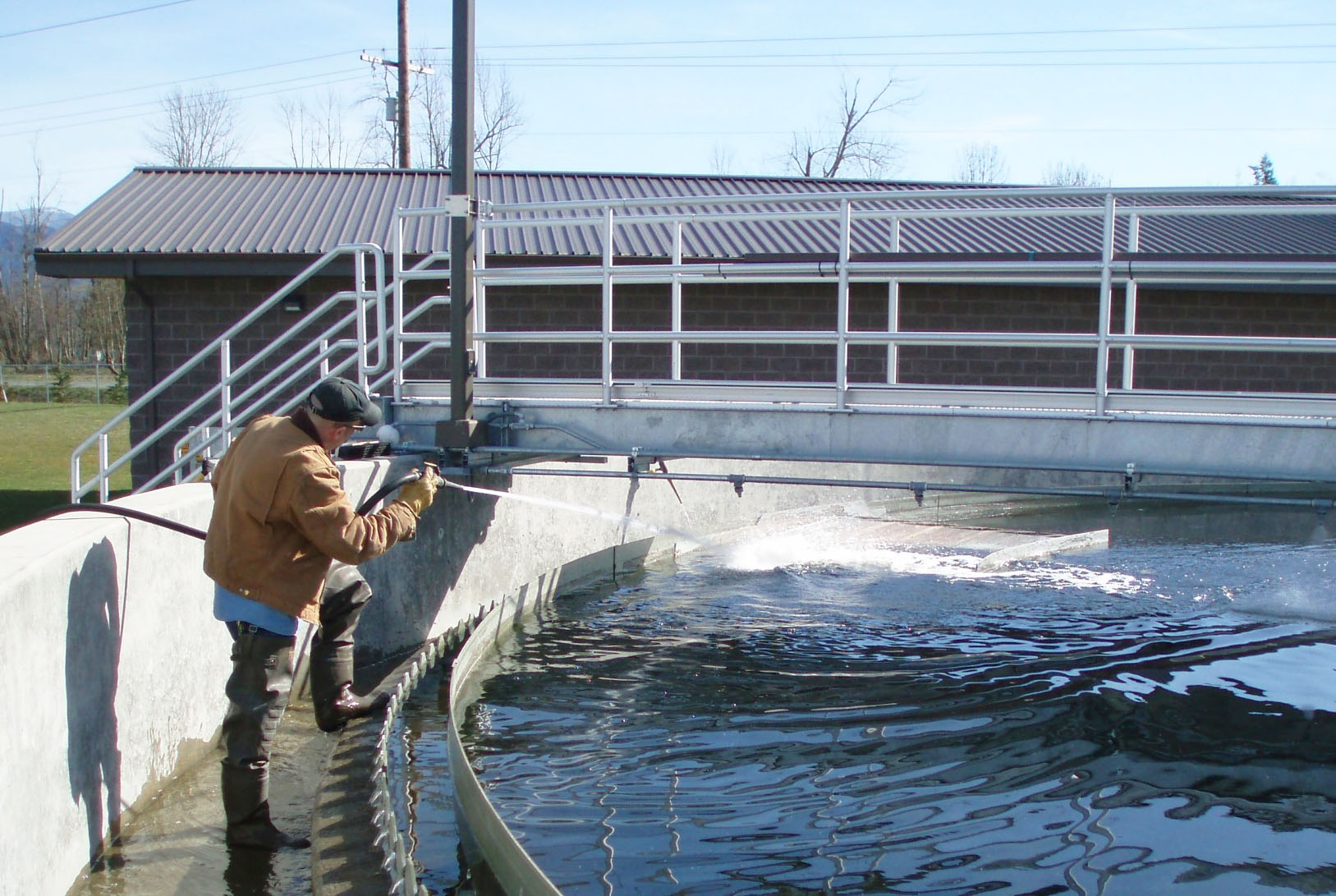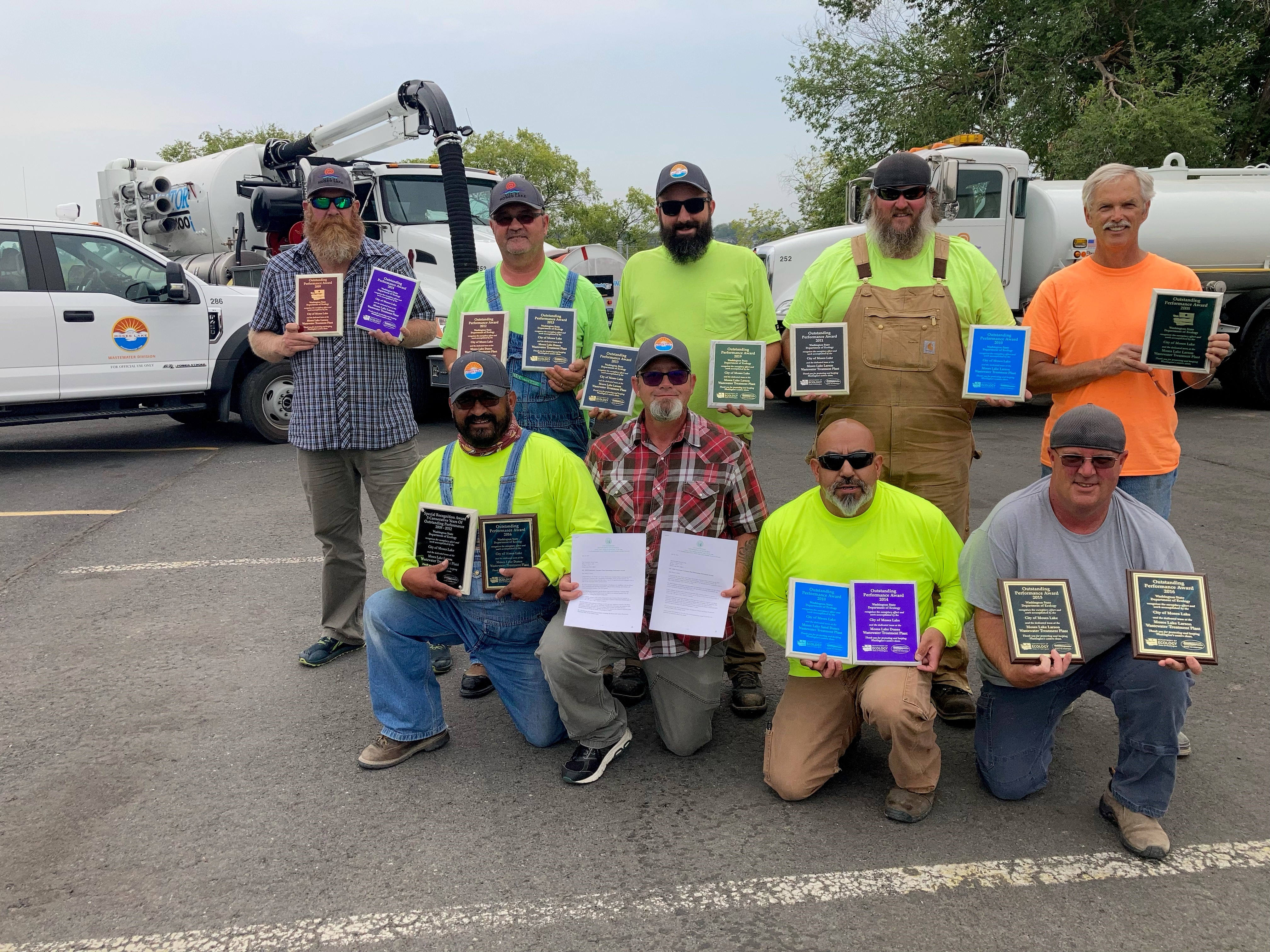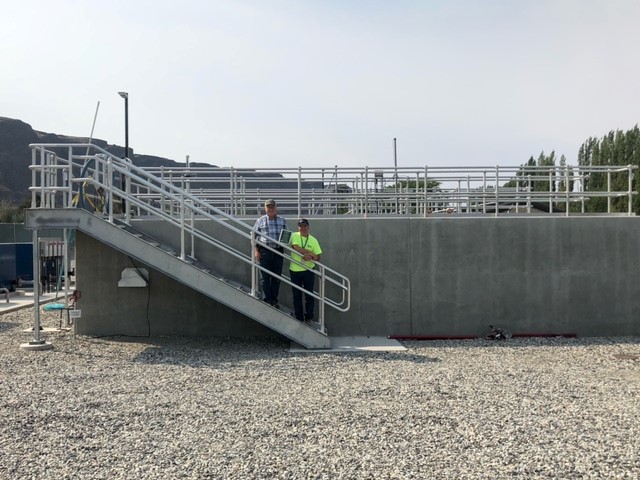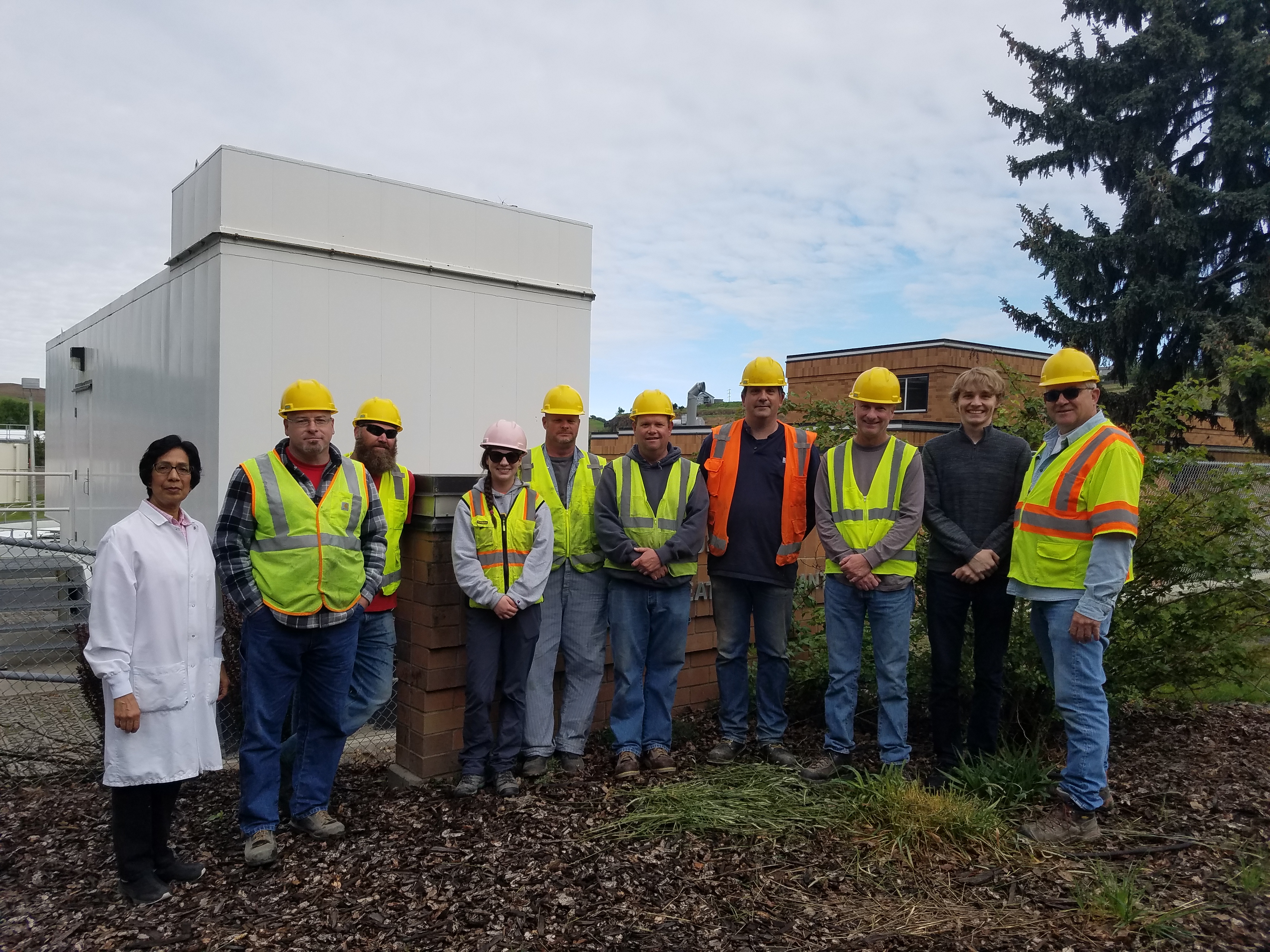
Wastewater Treatment Plant Operators are essential frontline workers you may not have immediately thought about during the pandemic. However, operators work hard to ensure that while many of us are at home, everything we flush down a drain or toilet that went to a wastewater treatment plant (WWTP), meets the state pollution limits and protects Washington’s water.
Essential work in tough times
This year, saying thank you to wastewater operators is particularly important because of how this group has banded together in rapid response to the pandemic.
When we all started staying home to keep one another safe, wastewater changed. Facilities had to adjust because wastewater flows from some areas decreased due to lack of tourists and schools and businesses temporarily closing, but increased in other areas because more people were using the facilities at home. Also, as a result of COVID-19, operators saw an increase in stuff that shouldn’t have been flushed in the first place, like used personal protective equipment such as gloves and masks, along with antibacterial wipes. Operators joined together, and with our technical assistance made a plan to help one another if a facility experienced capacity issues or something broke. They volunteered resources, shared expertise, and even created an emergency call list to come help if something went wrong. We appreciate the initiative of these wastewater treatment plant operators and their willingness to help all Washingtonians in these unprecedented times.
“Wastewater treatment plant operators demonstrated just how resilient, talented, and dedicated they are by what they accomplished in 2020.” said Vince McGowan, Ecology’s water quality program manager. “Their efforts help protect water quality for all of us. Now is the time to thank your local wastewater treatment plant operator.”
Thank you to Washington’s Wastewater Treatment Plant Operators
Moses Lake wastewater operator staff pose with their many awards.
126 wastewater treatment plants, nearly 40% of Washington’s treatment systems, earned the top-performing status this year. That means that even in this tough year they met all state pollution limits, did all of their monitoring, turned in reports on time, planned for spill prevention, pretreated waste, and fulfilled all operation demands outlined in their permits. These are no small tasks and it takes all employees at a facility using their great knowledge and skills to work together and clearly communicate to achieve success.
What this award means
We talked to employees at WWTPs to get a better sense of what this award means to them. Here’s what one supervisor had to say:
Trevor Cook, City of Pullman WWTP Supervisor says, “The City of Pullman Wastewater Treatment Plant staff is honored to receive distinguished recognition for providing exceptional treatment of the city's wastewater. This achievement exemplifies the hard work and commitment of Pullman residents, elected officials, administrators, and plant staff to the mission of ensuring clean water for a thriving ecosystem.”
This year’s winners
Here are a few highlights from this year’s awards. Check out the full list of awardees separated by county.
Reuel Klempel
Facilities with the most years of outstanding performance:
- Manchester (Kitsap County) 26 years
- Port Townsend WWTP 25 years
This year we have several first time awardees:
- Freeman School District WWTP
- City of Goldendale
- LaCrosse
- City of Winlock WWTP
Continuous improvement recognition - facilities that haven’t won in recent years but worked hard in these tough times to have an outstanding year:
- City of Entiat WWTP (won previously in 2015)
- City of Pullman WWTP (won previously in 2000)
- Raymond (won previously in 2011)
- City of Richland WWTF (won previously in 2014)
- City of Stevenson WWTP (won previously in 2014)
- City of Woodland WWTF (won previously in 2013)
Congratulations to these facilities and all 126 facilities for their hard work protecting Washington’s waters.
As the City of Pullman knows it takes a whole team to succeed at wastewater treatment.
Be a part of the solution
Ecology oversees the certification program for wastewater operators. Given our state’s growing population, we need to treat more and more wastewater. This is a great field, with growth opportunities. If you have experience as a welder, machinist, mechanic, operator at other similar facilities, laboratory technician, or engineer, you might have the right type of experience for this work! Check out our certification program website for more information.




